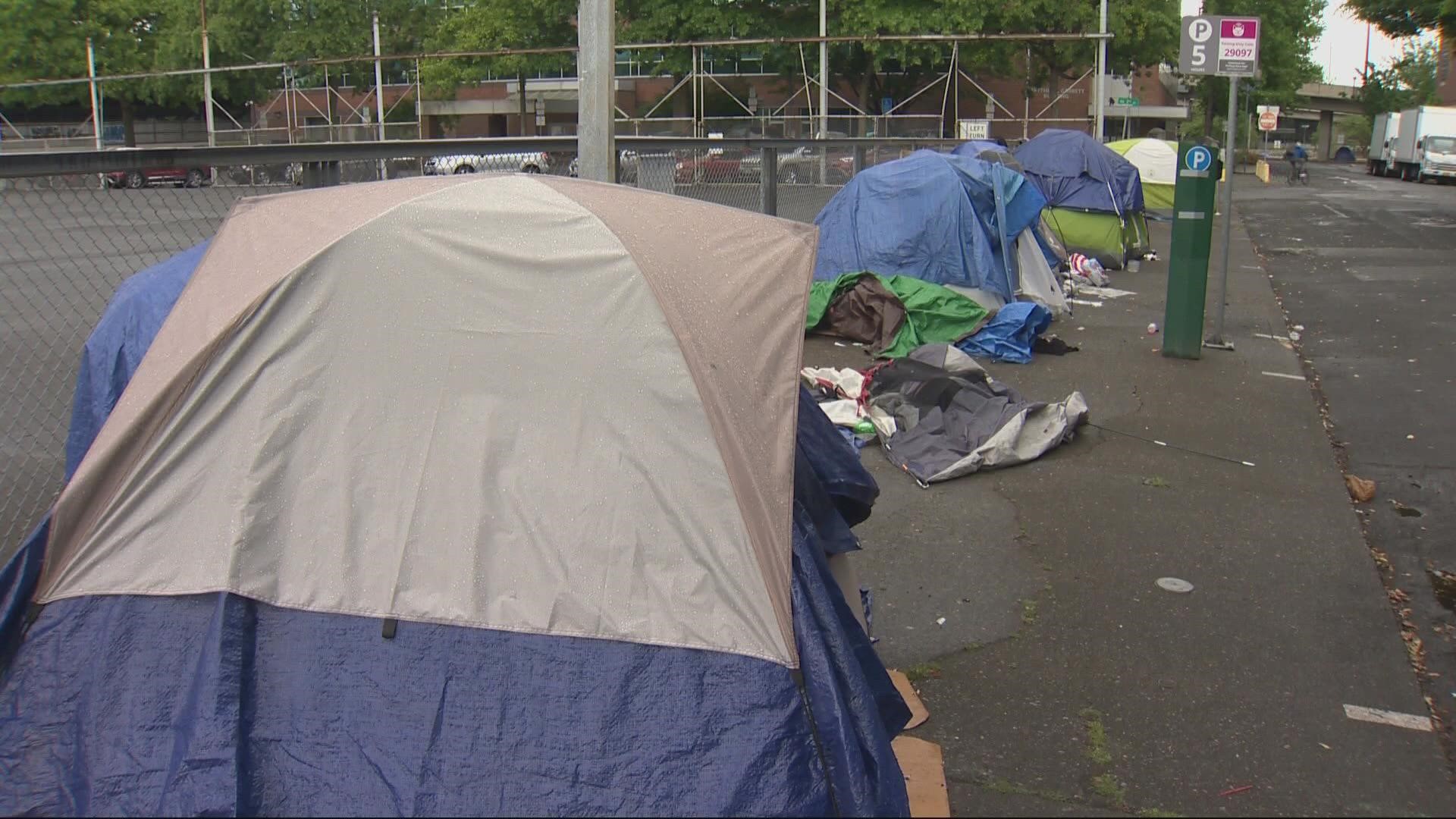PORTLAND, Ore. — For the second time this year, a judge rejected a ballot initiative that could have dramatically changed how money is spent on Portland’s homeless crisis.
The initiative came from People for Portland, an advocacy group led by political strategists aimed at putting pressure on elected officials to solve homelessness. They’ve been working on this for several months, yet the court continues to rule it unconstitutional.
The basis for the initiative dates back to two years ago, when voters approved a tax on high-income earners that would provide $250 million a year for supportive housing services.
People for Portland's ballot initiative would redirect 75% of that money to build more emergency shelters — as opposed to the wider array of housing options prioritized at present — and enact no-camping laws. On Wednesday, the court ruled it unconstitutional, saying that it violated Metro code.
This was the second time People for Portland tried passing this ballot initiative. It's been rebuffed both times in court, without making it to voters.
The group said in a statement: “We are very disappointed in this ruling. It represents a dramatic change in Oregon’s initiative system that will limit the ability of the people to have a say in their government.”
Dan Lavey, one the group’s founders added, “We’re not giving up. We will find a new and different way to drive change.”
According to a People for Portland survey, 74% of Portland-area voters want existing metro tax dollars to go toward helping people get off the streets and into shelters and 75% of voters believe current spending to end homelessness is ineffective.
But for many people involved in Portland's response to homelessness, the ballot initiative betrays a deficit of the nuanced approach required to actually transition people into housing.
“Shelter doesn’t end homelessness — people are still homeless in shelter,” said Patricia Rojas, Metro’s regional housing director.
Metro welcomed the court’s decision. They believed the voter-approved supportive housing service fund has already been working without this initiative.
“In the first nine months alone, the program has created hundreds of shelter beds, has helped hundreds of individuals out of homeless and into housing and has supported over 2,500 households by avoiding homelessness and keeping their housing to begin with rent assistance,” said Rojas.
Nonprofits focused on finding permanent housing for the homeless also felt the ruling was a win for the city.
“The centerpiece of this initiative calling for 75% of funds to be spent on shelter was the wrong direction from our over 53 years of experience to providing services to vulnerable people, particularly housing services," said Laura Golino De Lovato, the executive director of the Northwest Pilot Project. "Shelter is a part of the continuum, but it is not the answer to housing — shelter is not housing. shelter is shelter.”
People for Portland said it will look at legal options and find new ways to get more people into shelters.

